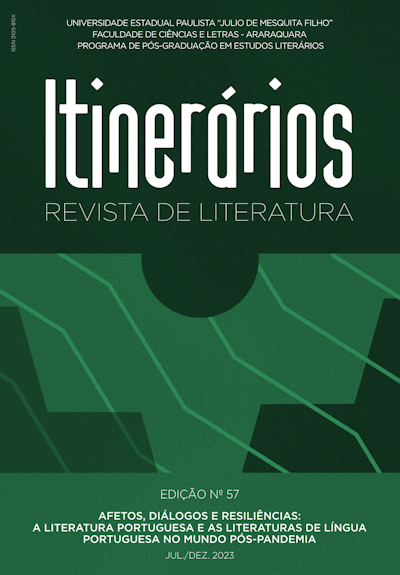Inês de Castro
ontem, hoje e sempre
DOI :
https://doi.org/10.58943/irl.v1i57.18694Mots-clés :
Inês de Castro, Diálogos, História, Ficção, MitoRésumé
No fatídico 07 de janeiro de 1355, morre Inês de Castro, personagem histórica que se mantém viva até a contemporaneidade. Desde as poucas linhas consagradas a ela nas Crónicas de Fernão Lopes, a figura da galega vive em cada uma das inúmeras releituras que o mito inesiano vem flagrando ao longo do tempo, em registros, por vezes parafrásicos, mas também estilizadores ou paródicos. Conforme muito bem apontou Vasco Pereira da Costa, “a história [de Pedro e Inês] está mais que contada, os poetas liricaram-na, os historiadores historiaram-na, os prosadores prosaram-na, os dramaturgos teatralizaram-na. E de tanto a trabalharem ela surgiu sempre outra (...). Sempre outra, não digo bem, porque, afinal, nada alterou o destino da gente que fez esta história: é sabido que qualquer autor que a retome, ressuscitando o tempo e as vidas (...) será obrigado ao final (...) a calar o tempo”. Esta intervenção pretende explorar o romance histórico Inês de Castro: espia, amante, rainha de Portugal, de Isabel Stilwell (2021), de modo a que consigamos traçar um caminho da personagem mítico-histórica, ou melhor, perceber como Inês de Castro foi ou não surgindo sempre outra, considerando sobretudo as ópticas histórica e do feminino.
Téléchargements
Publiée
Numéro
Rubrique
Licence
Os manuscritos aceitos e publicados são de propriedade da revista Itinerários. É vedada a submissão integral ou parcial do manuscrito a qualquer outro periódico. A responsabilidade do conteúdo dos artigos é exclusiva dos autores. É vedada a tradução para outro idioma sem a autorização escrita do Editor ouvida a Comissão Editorial.

